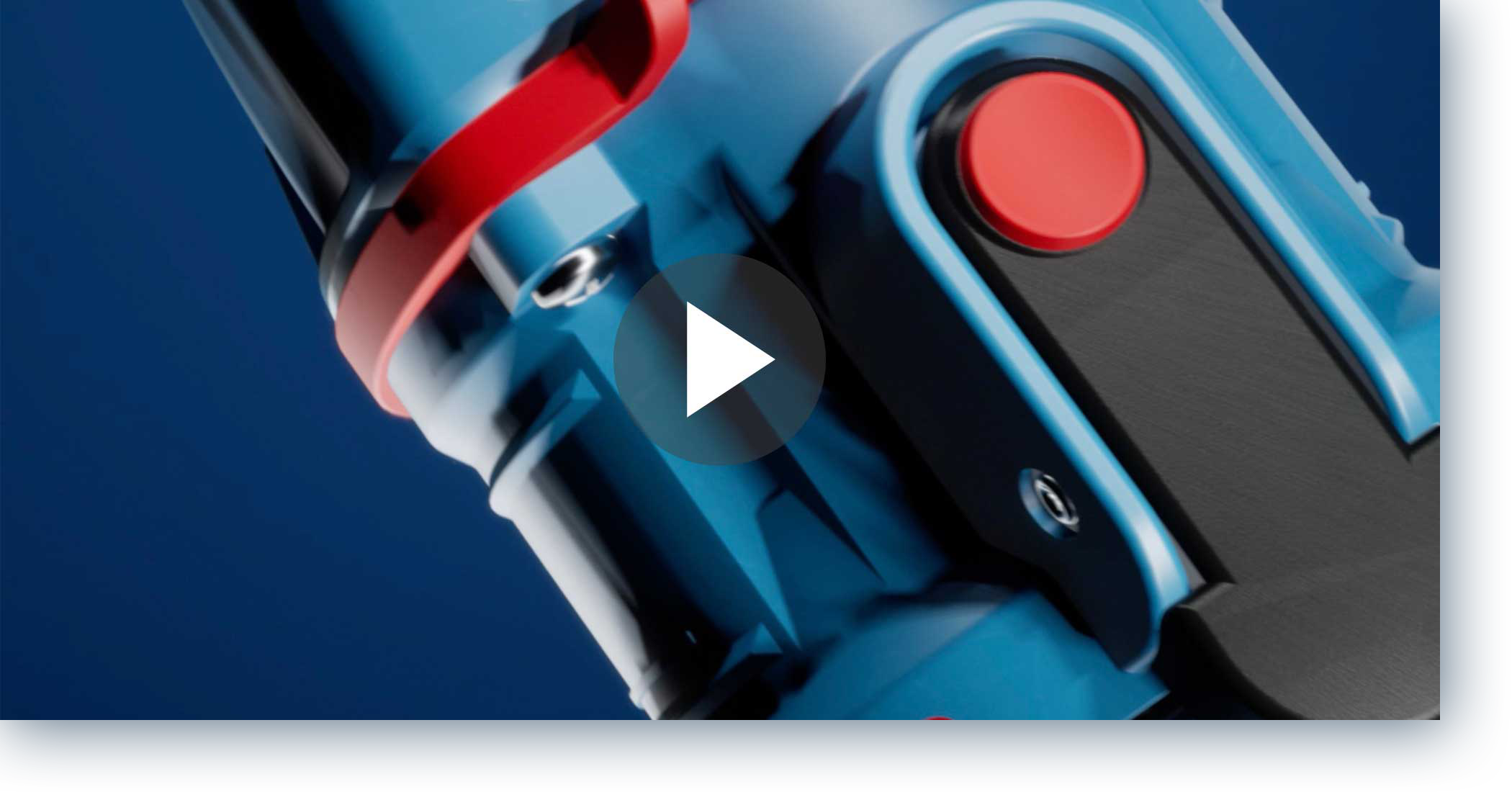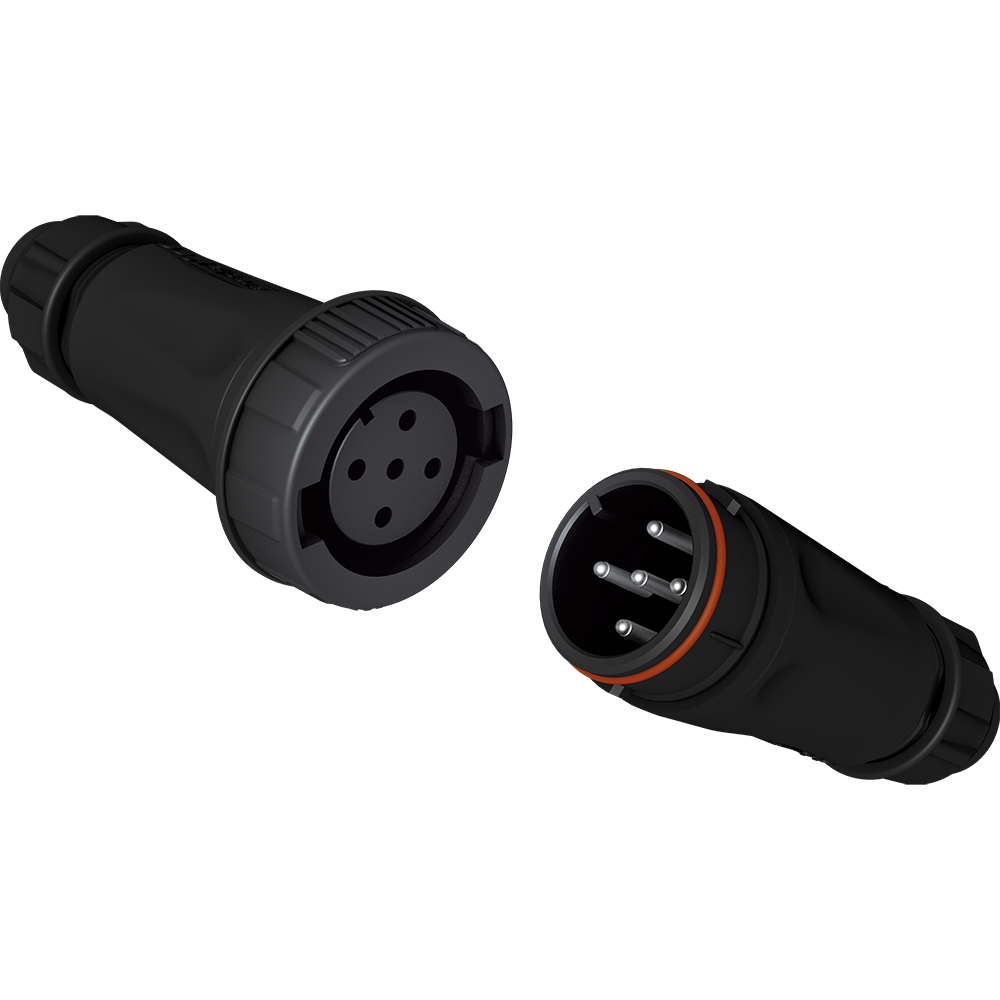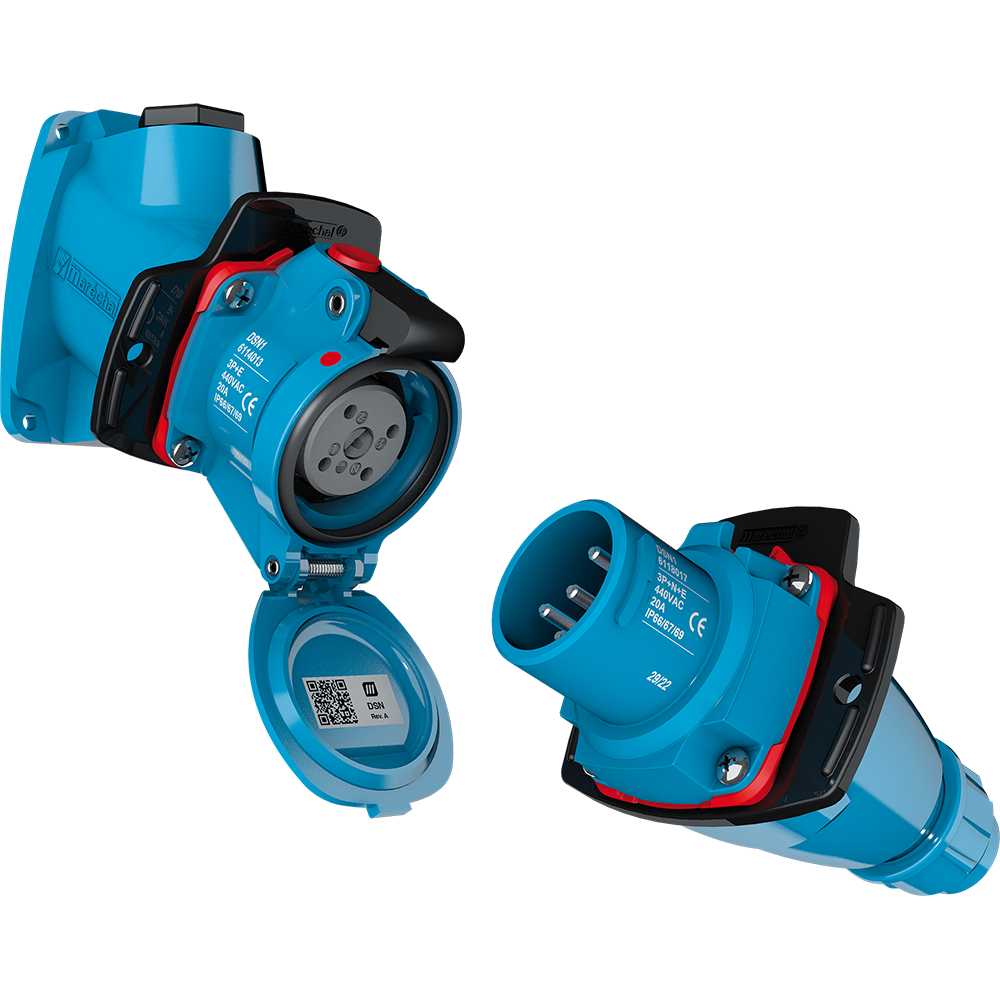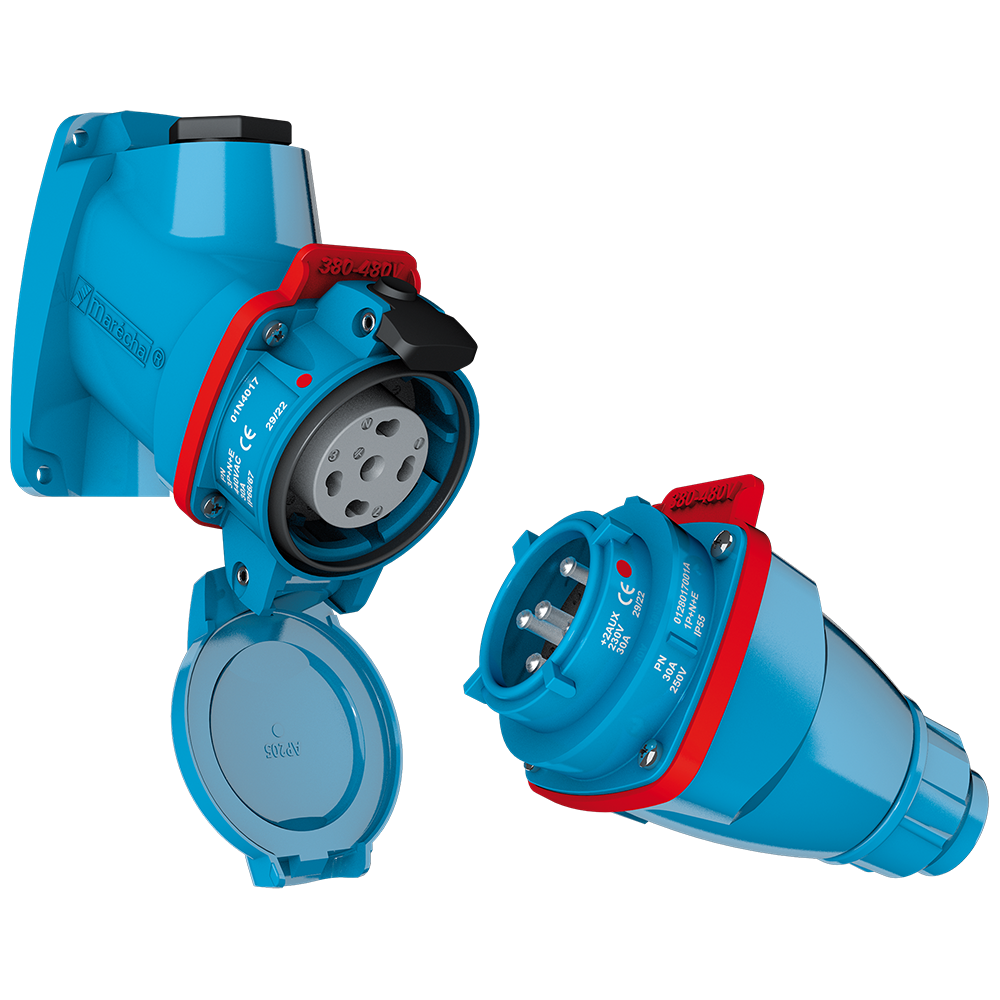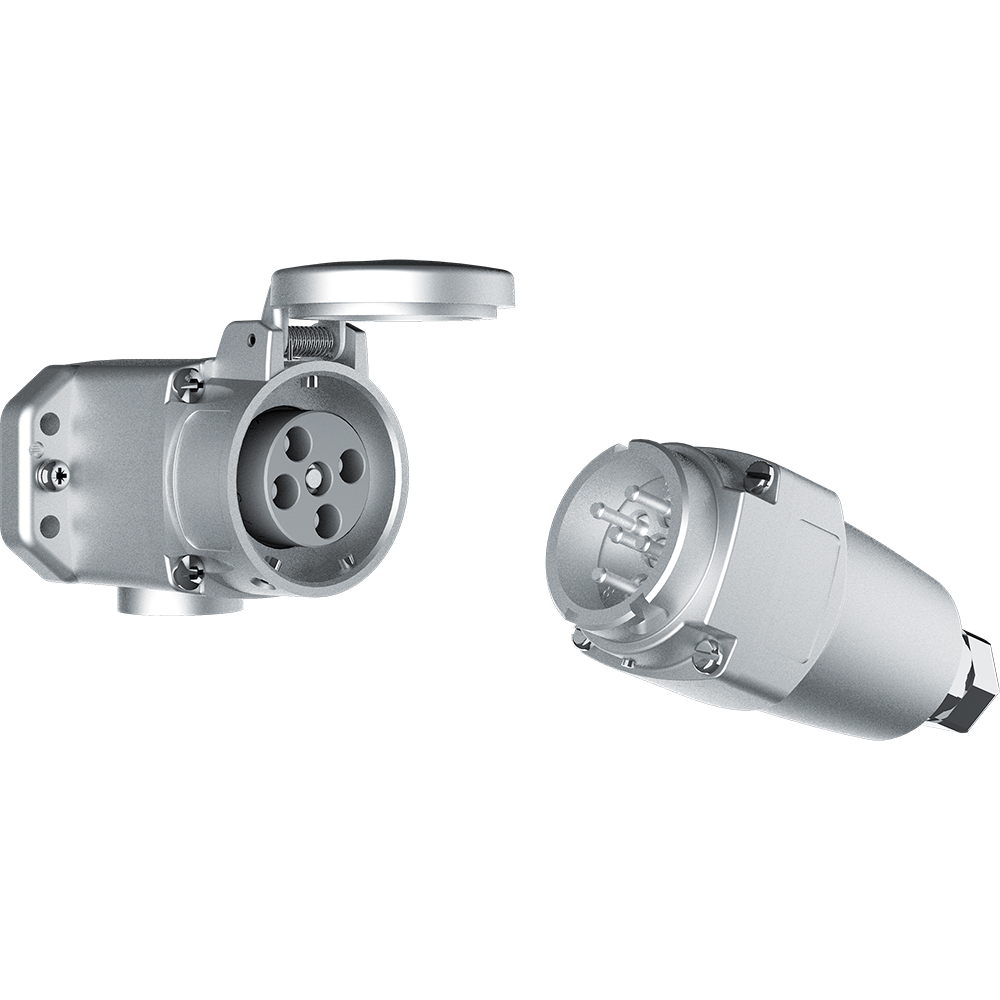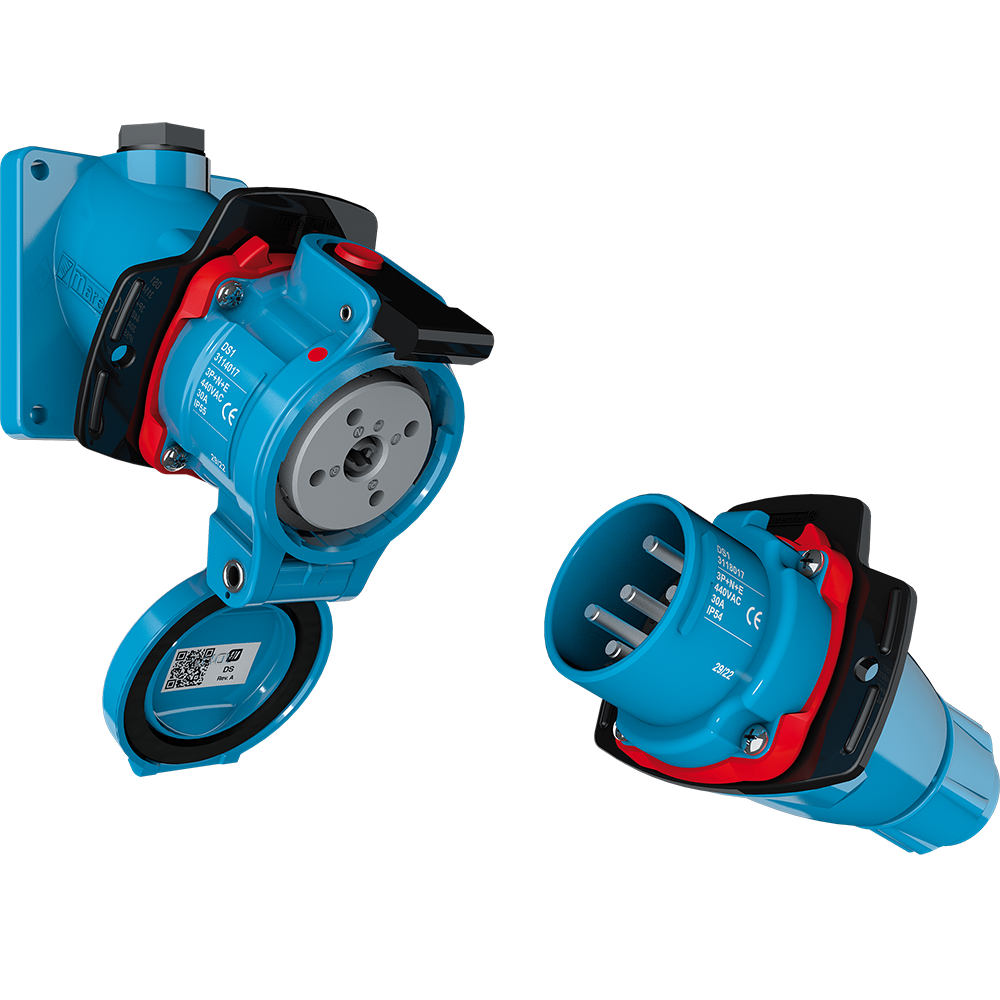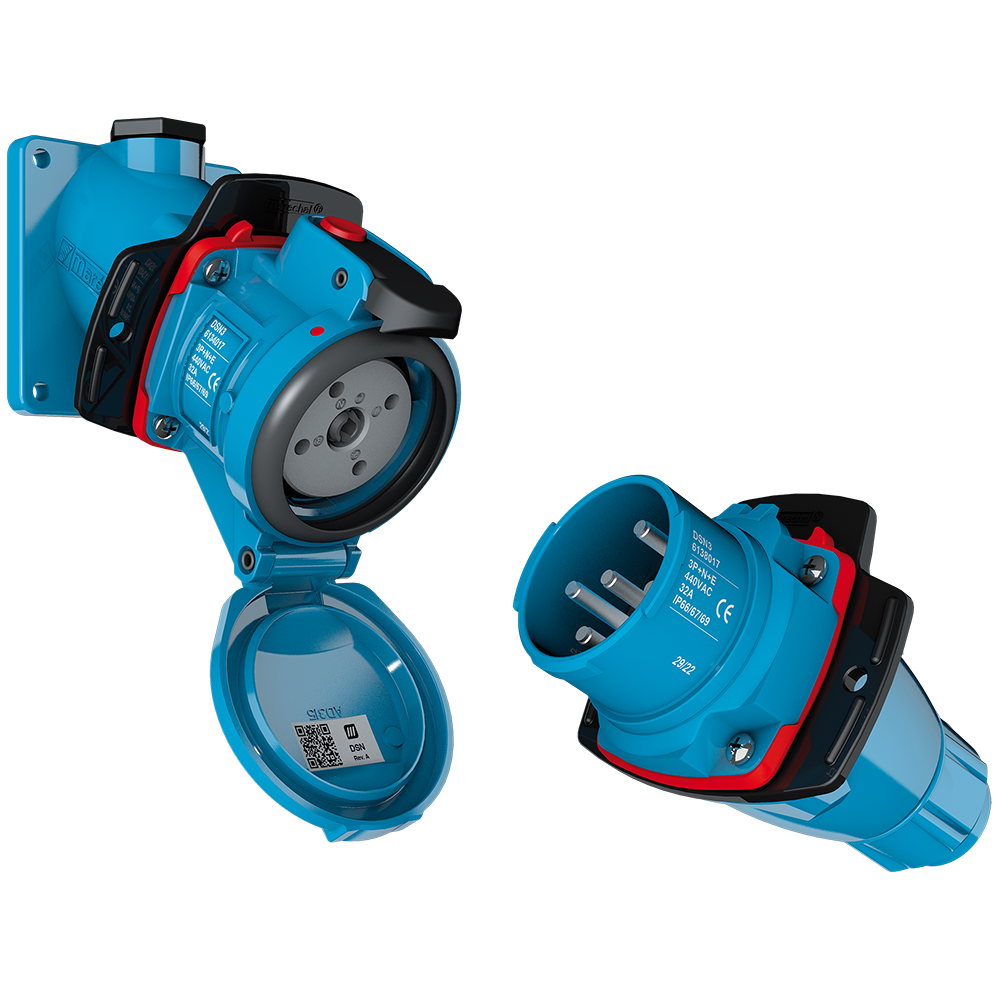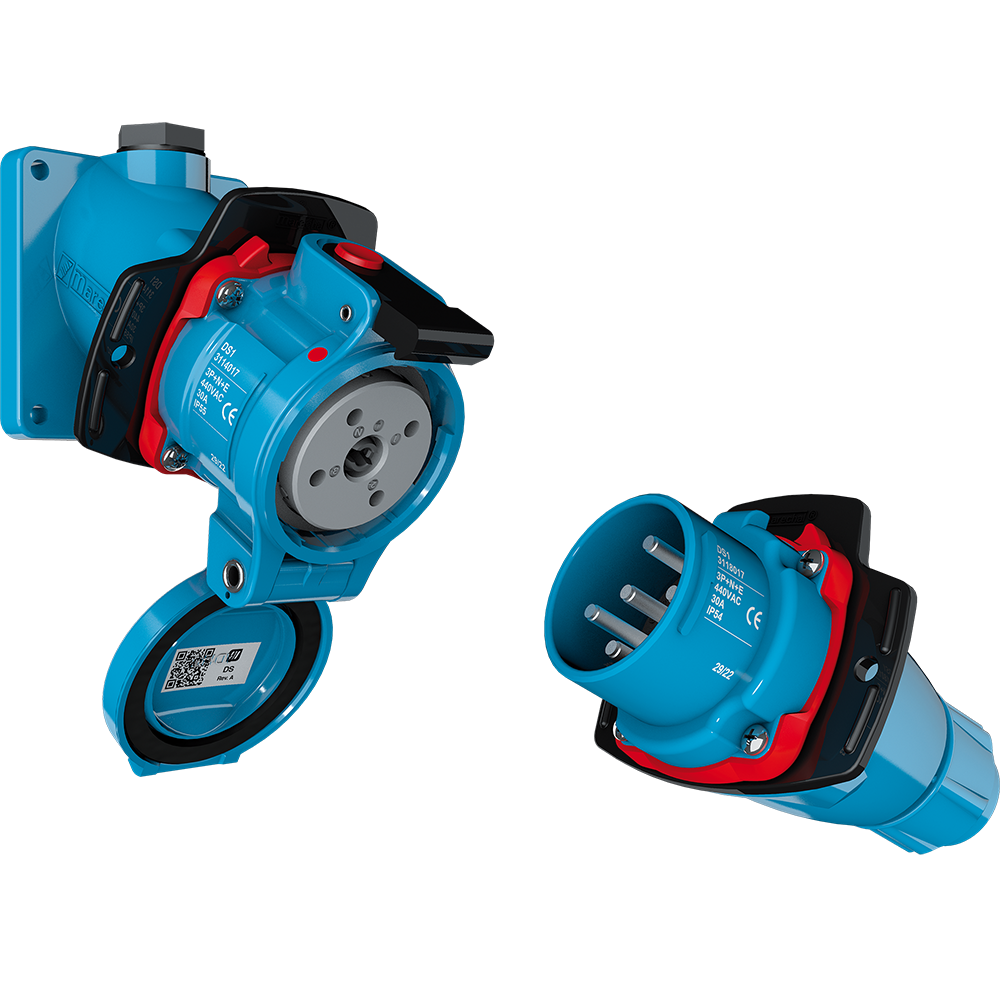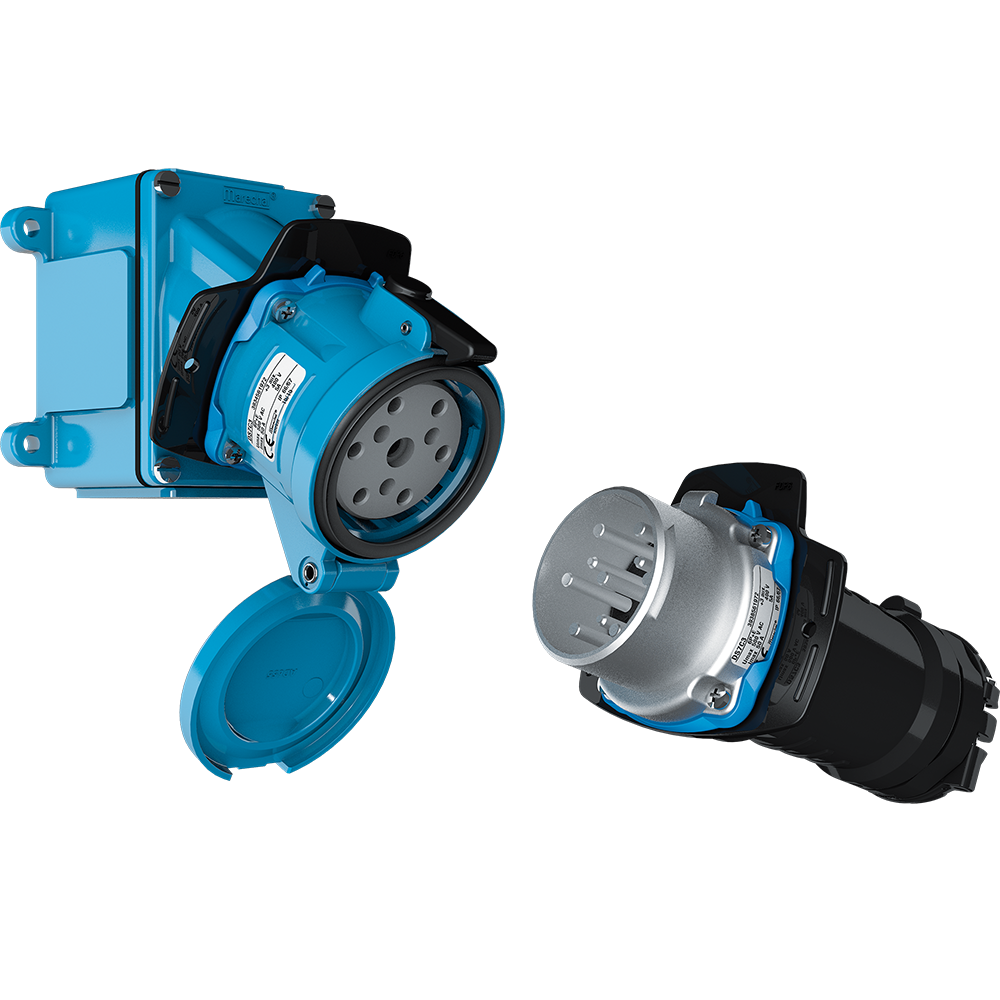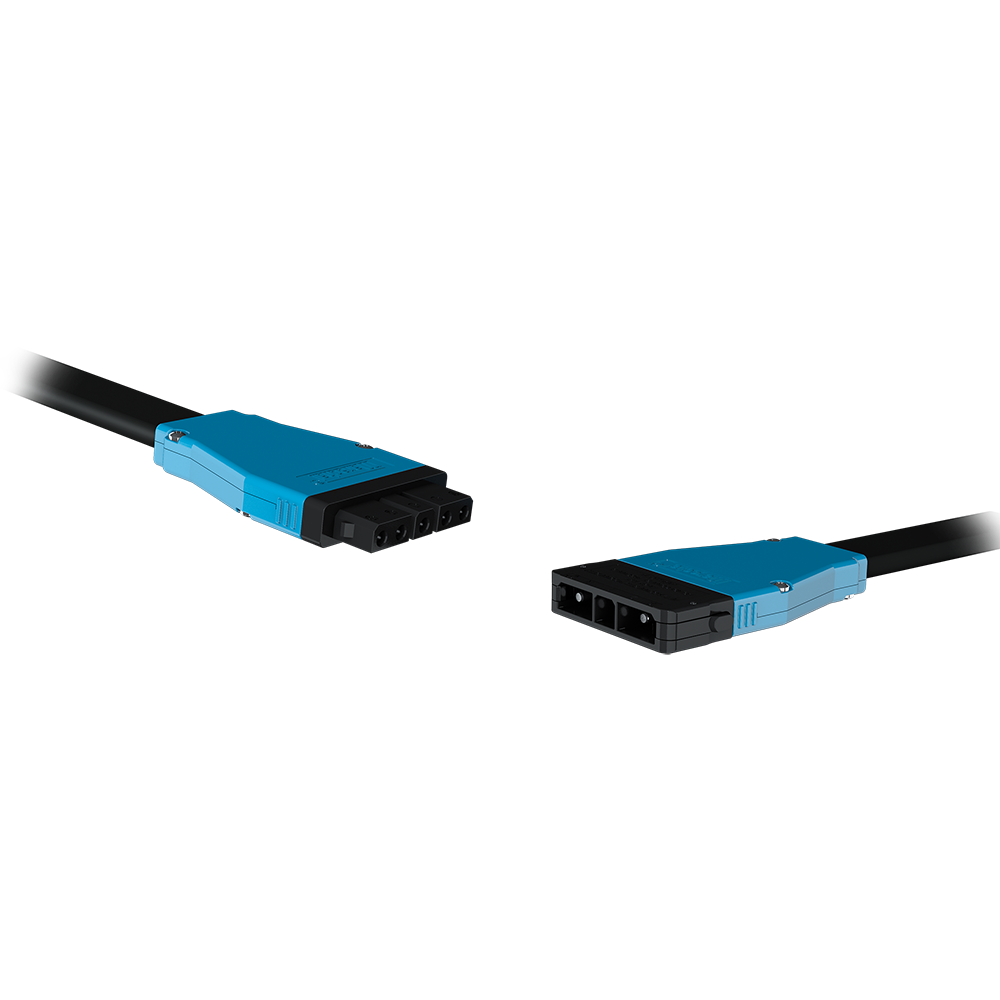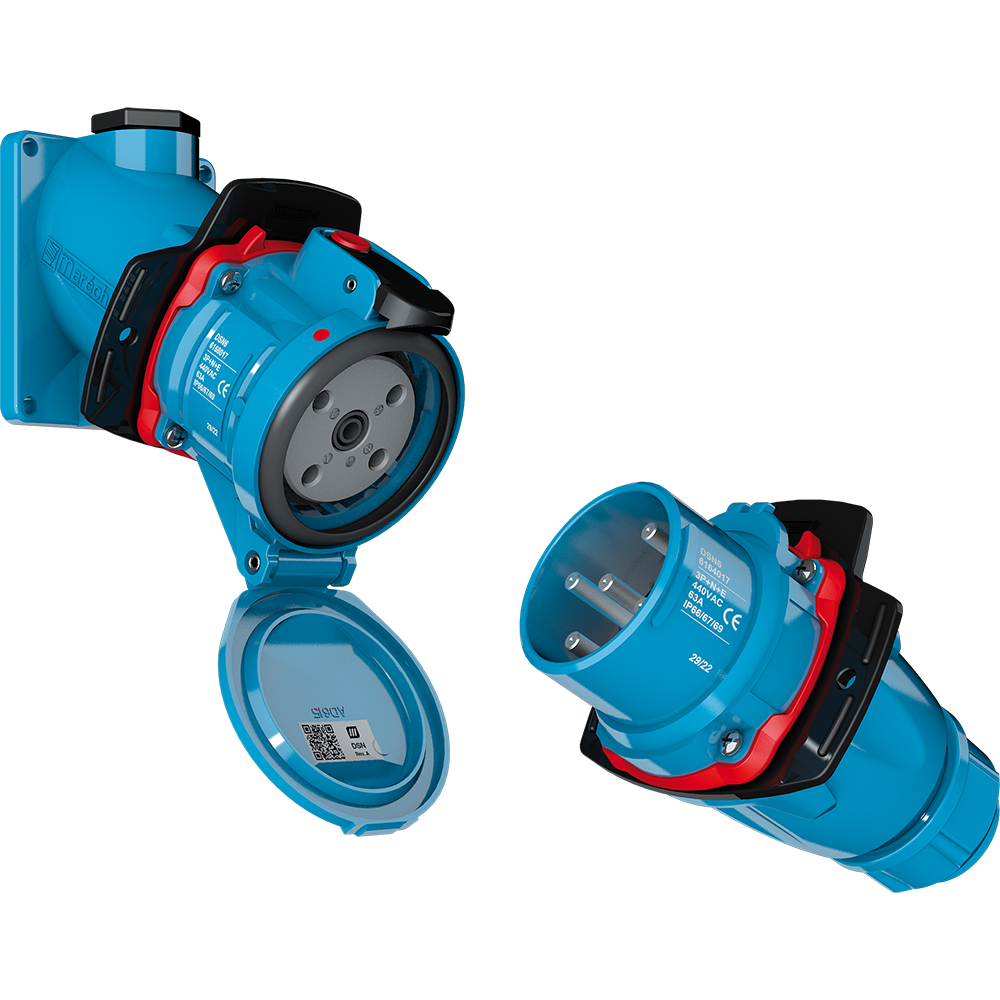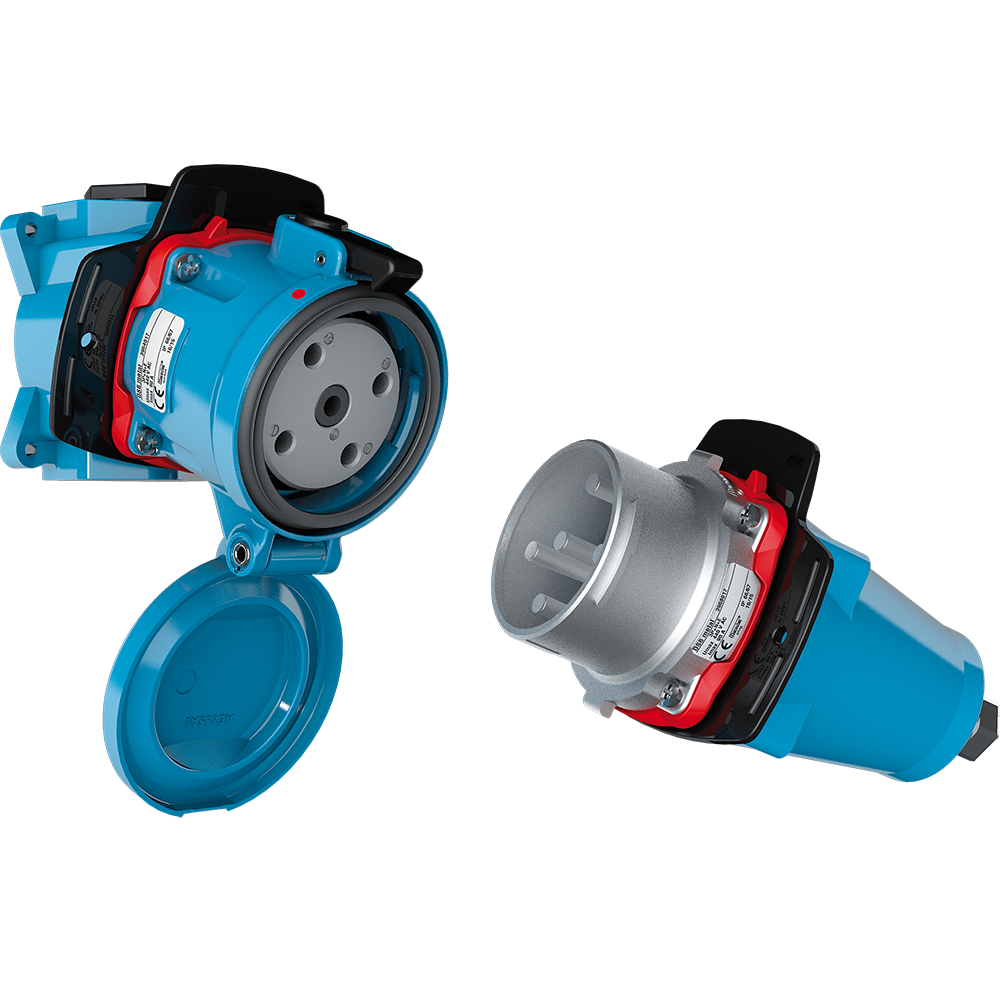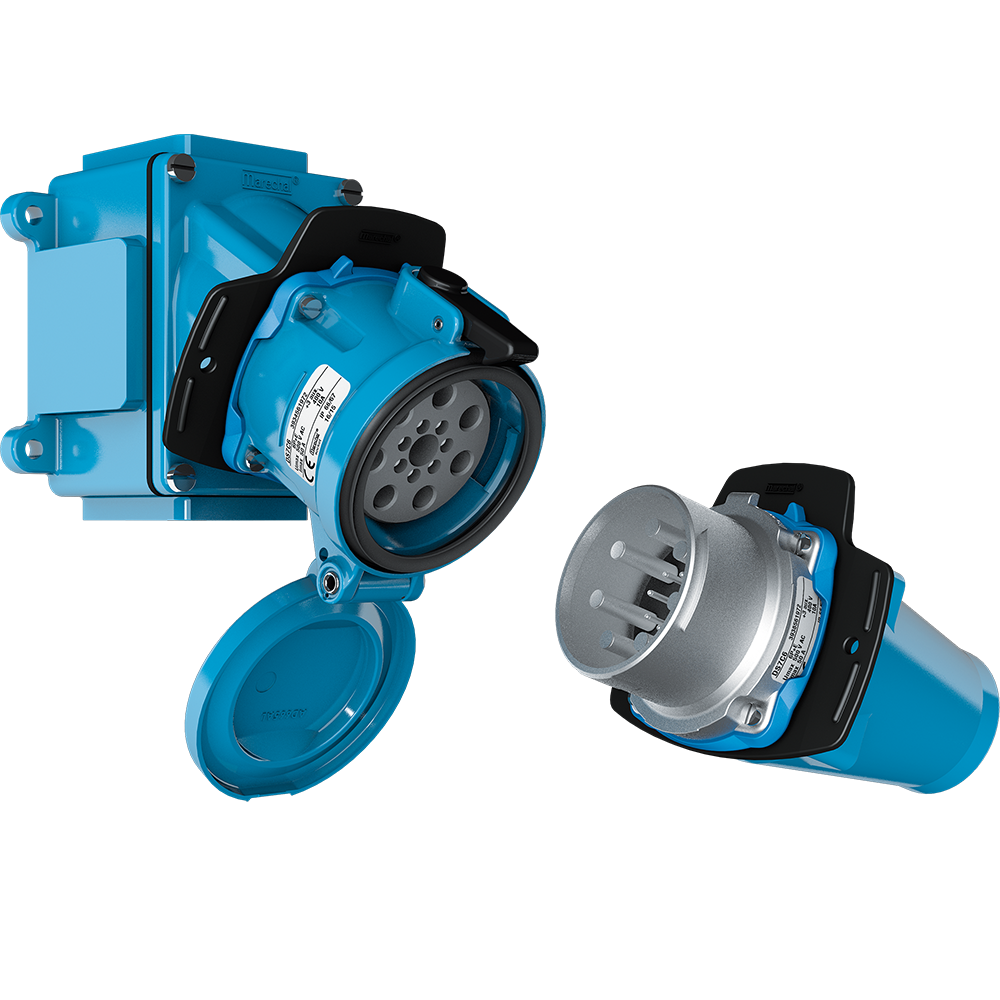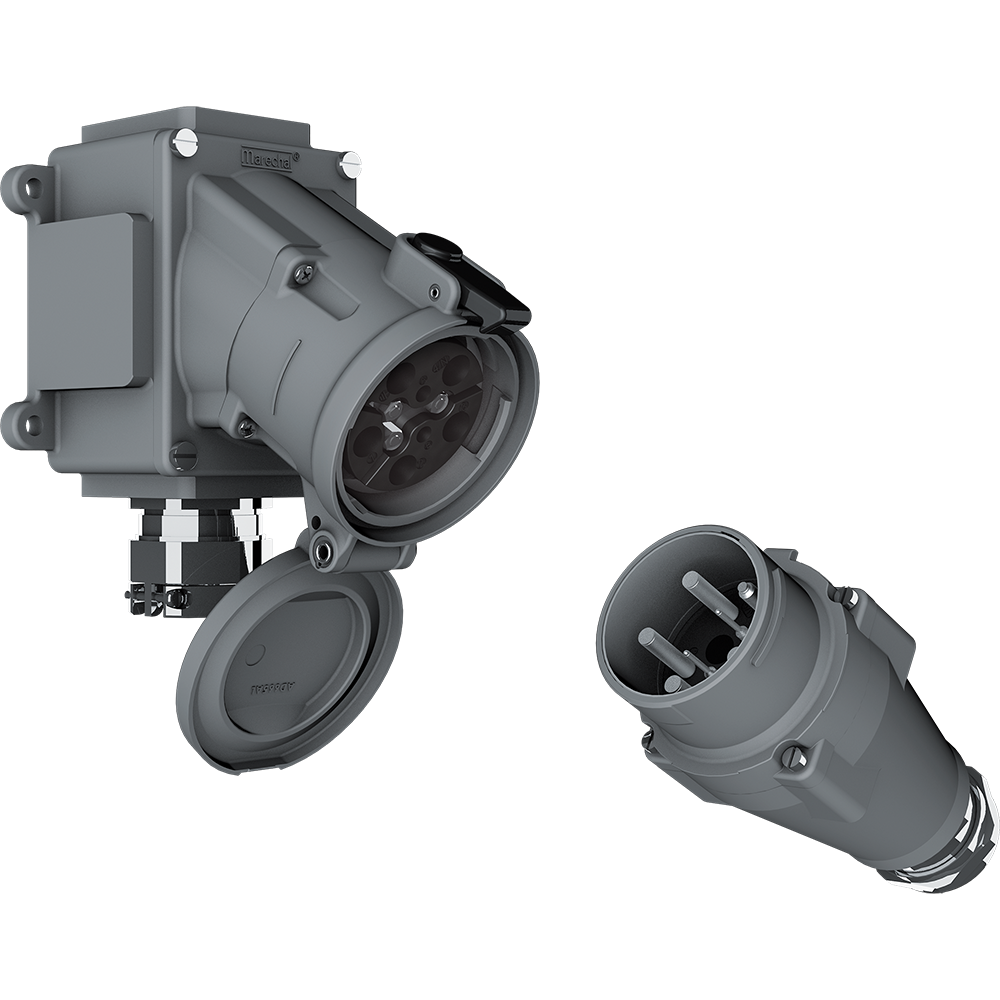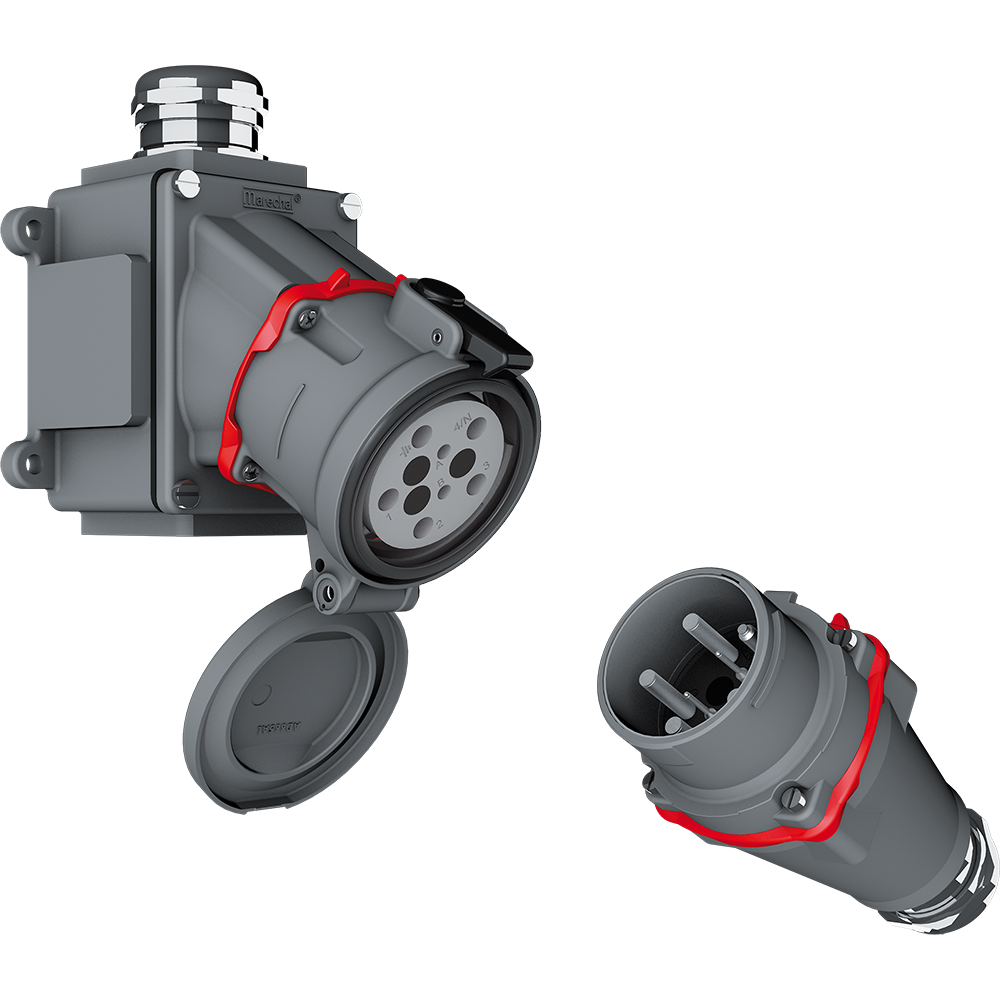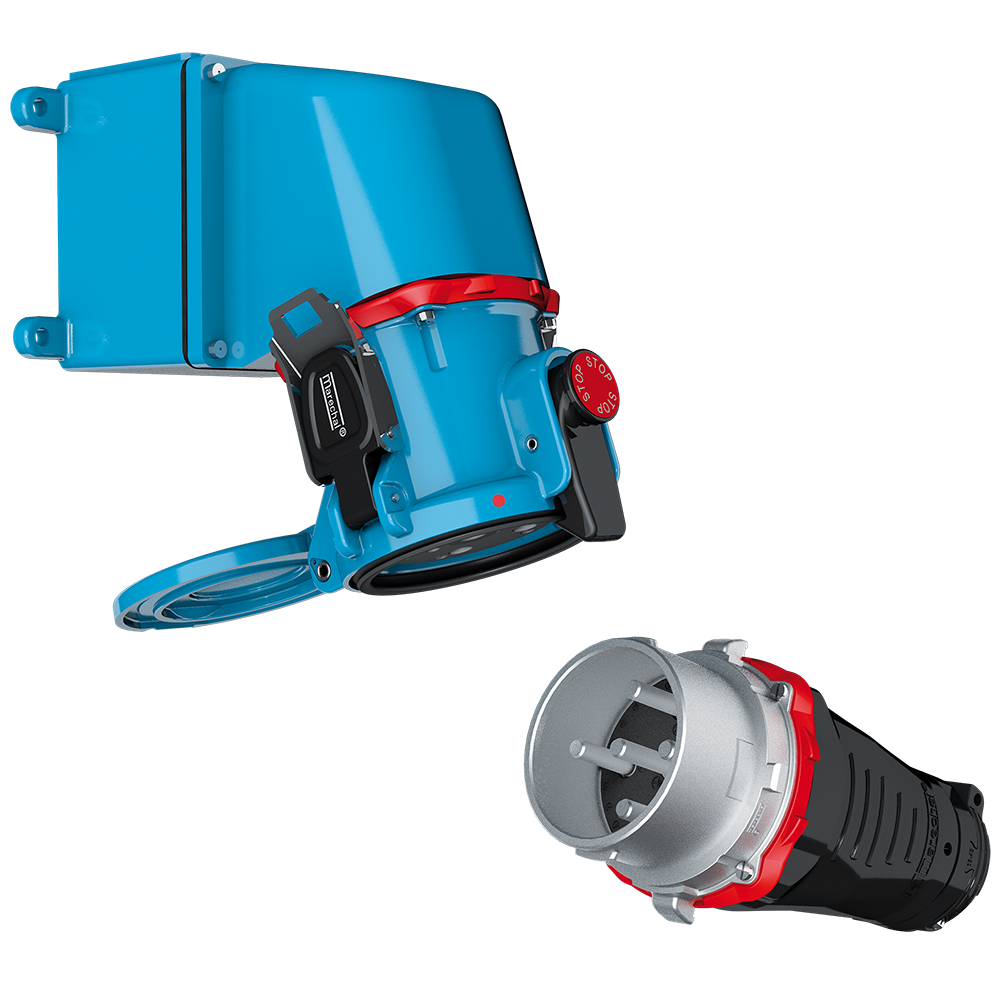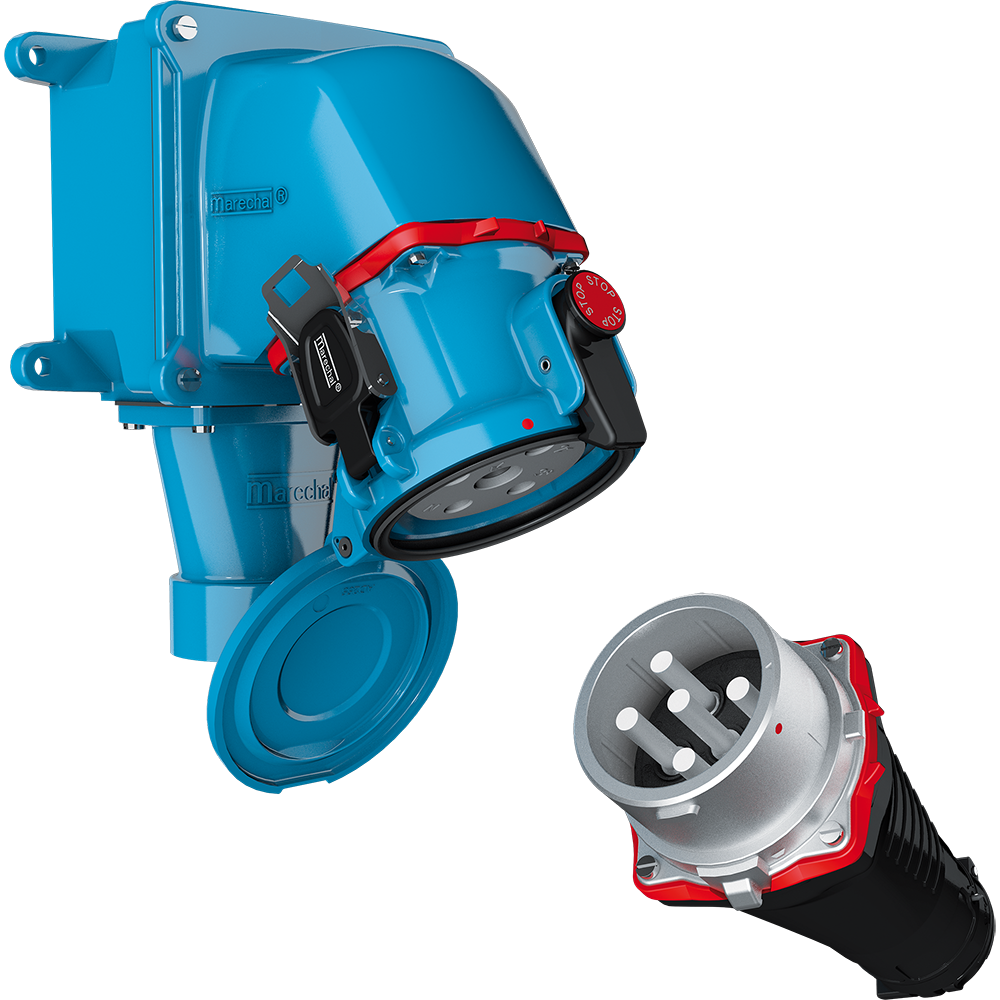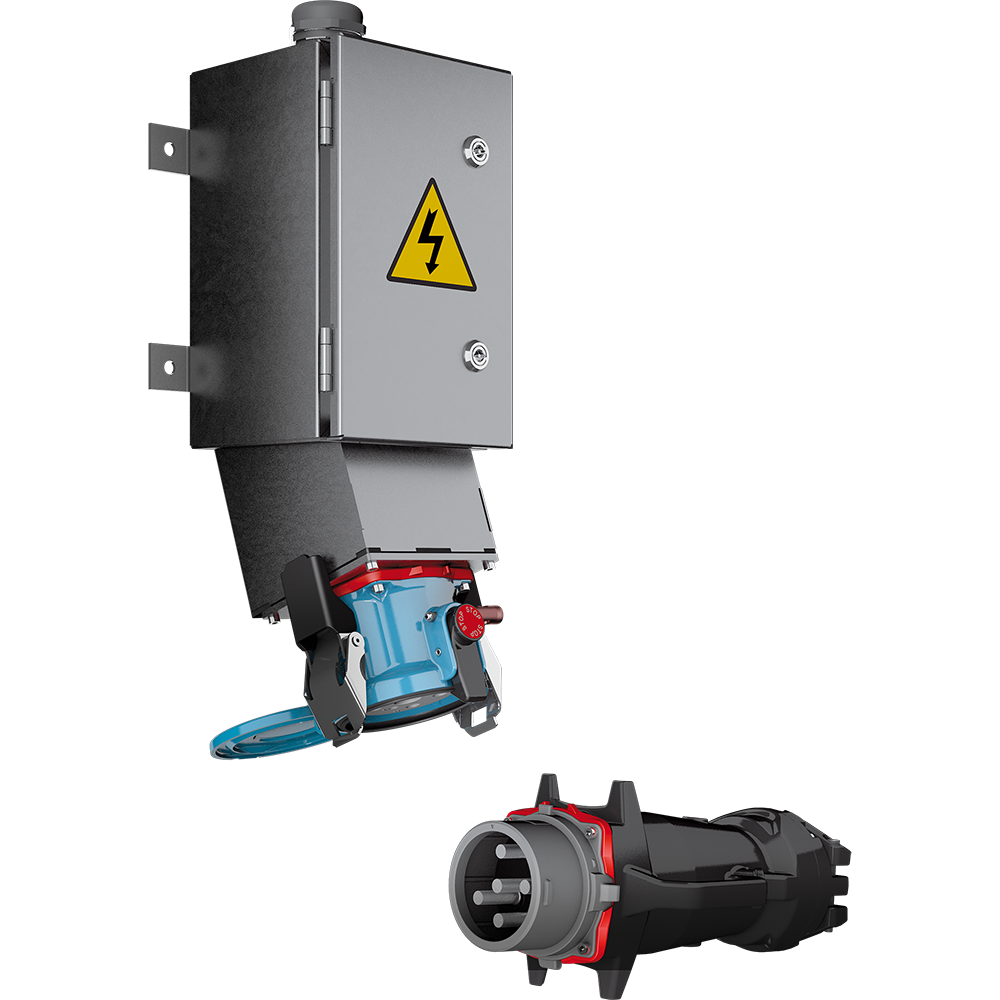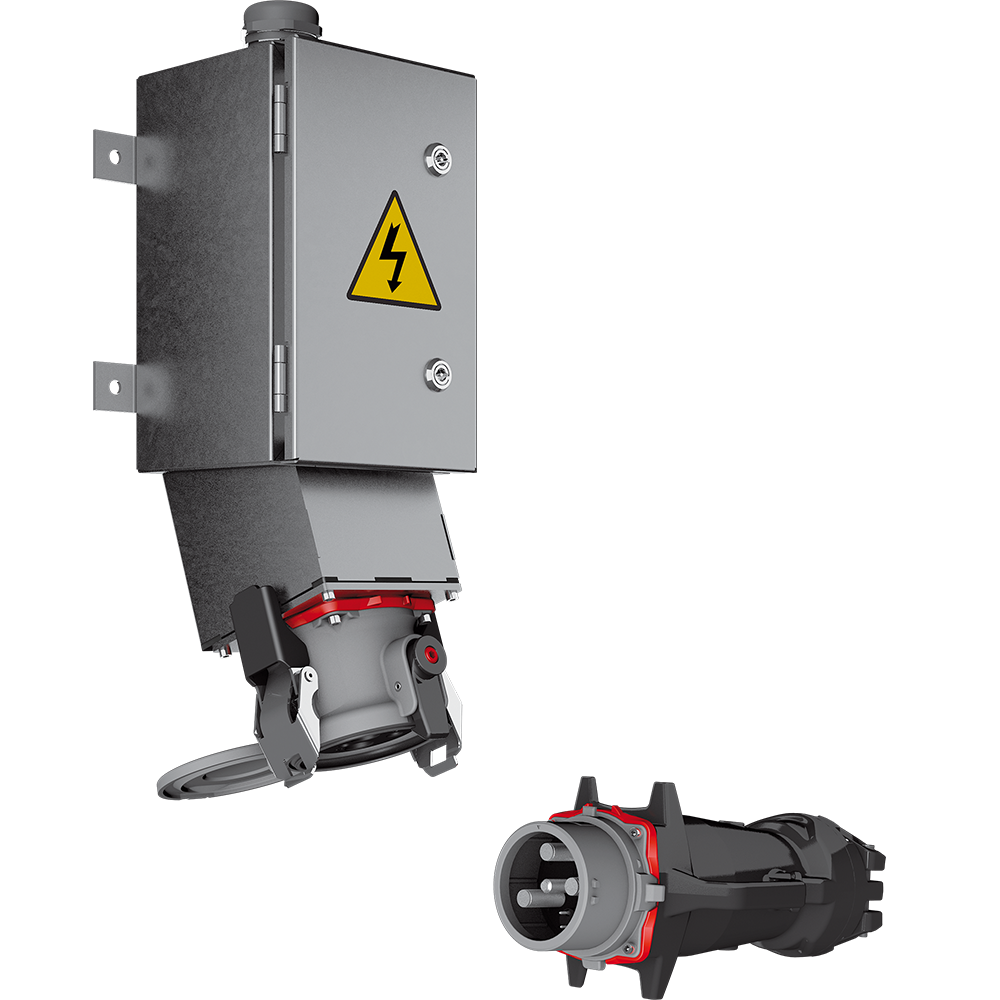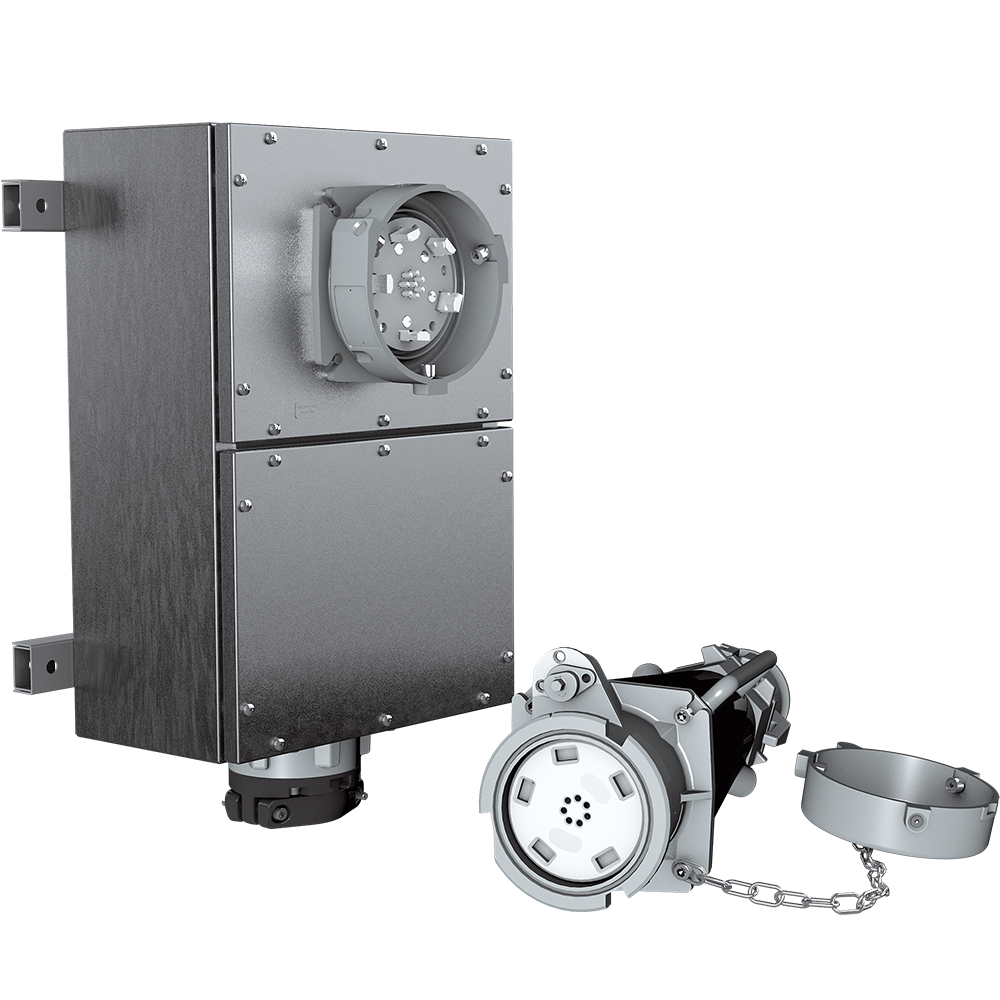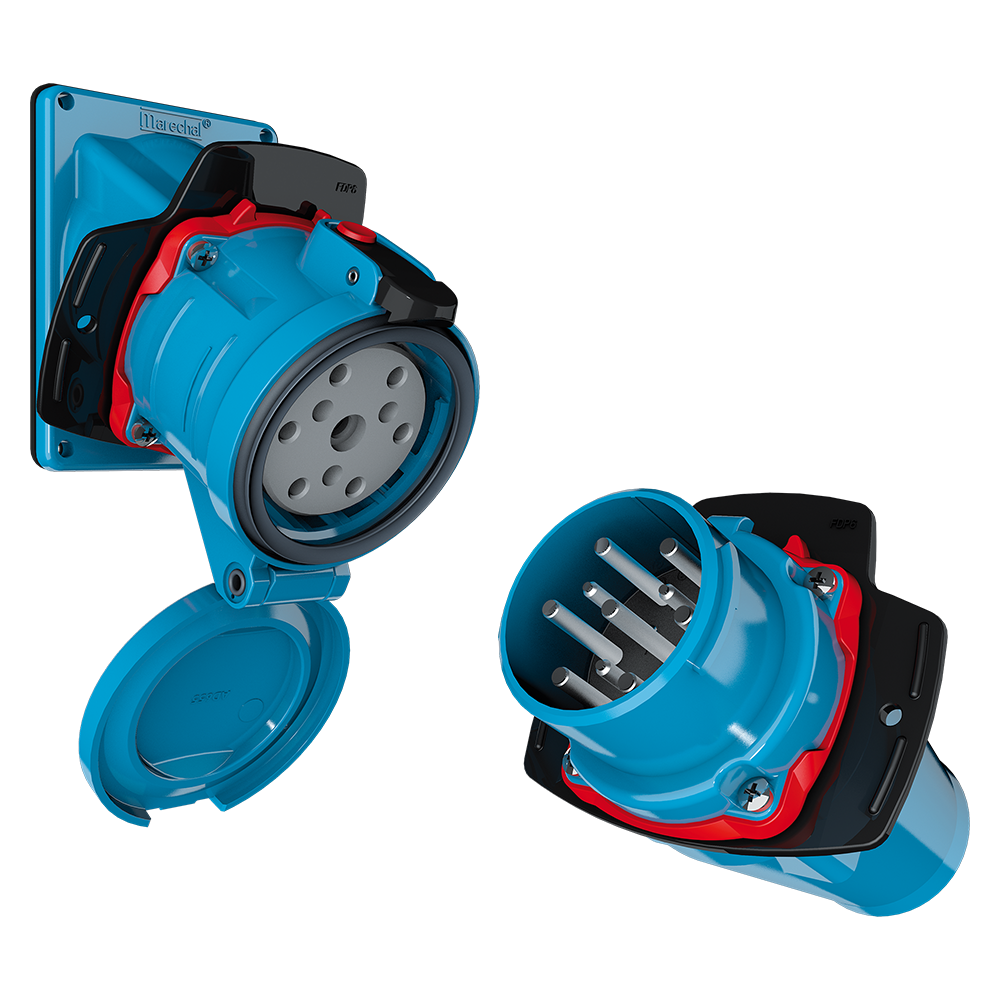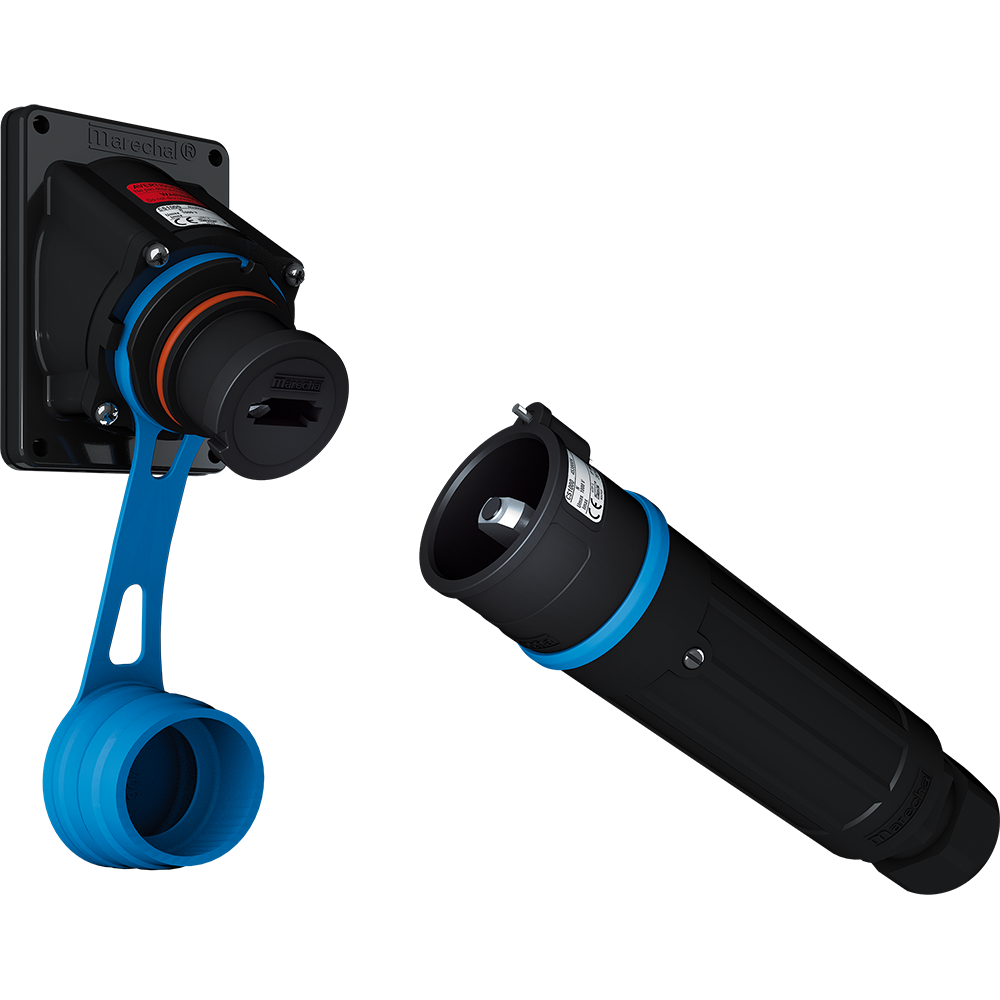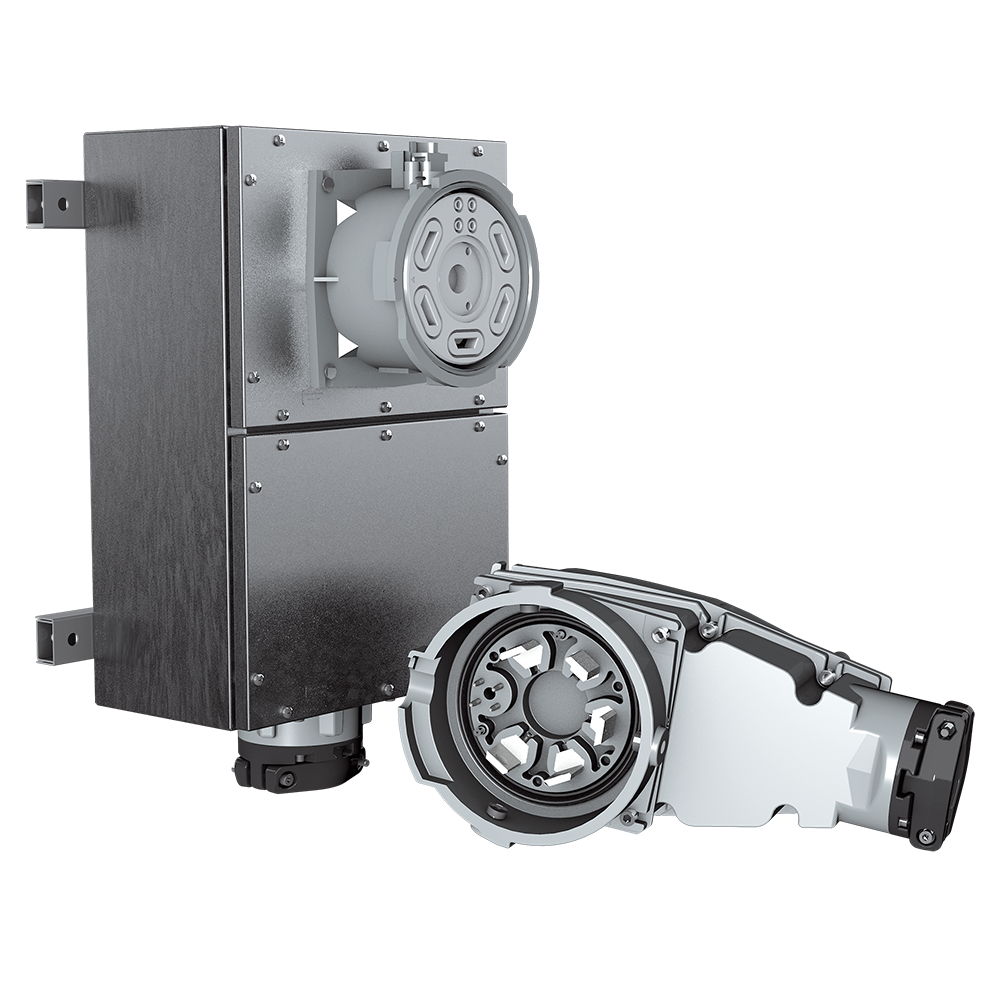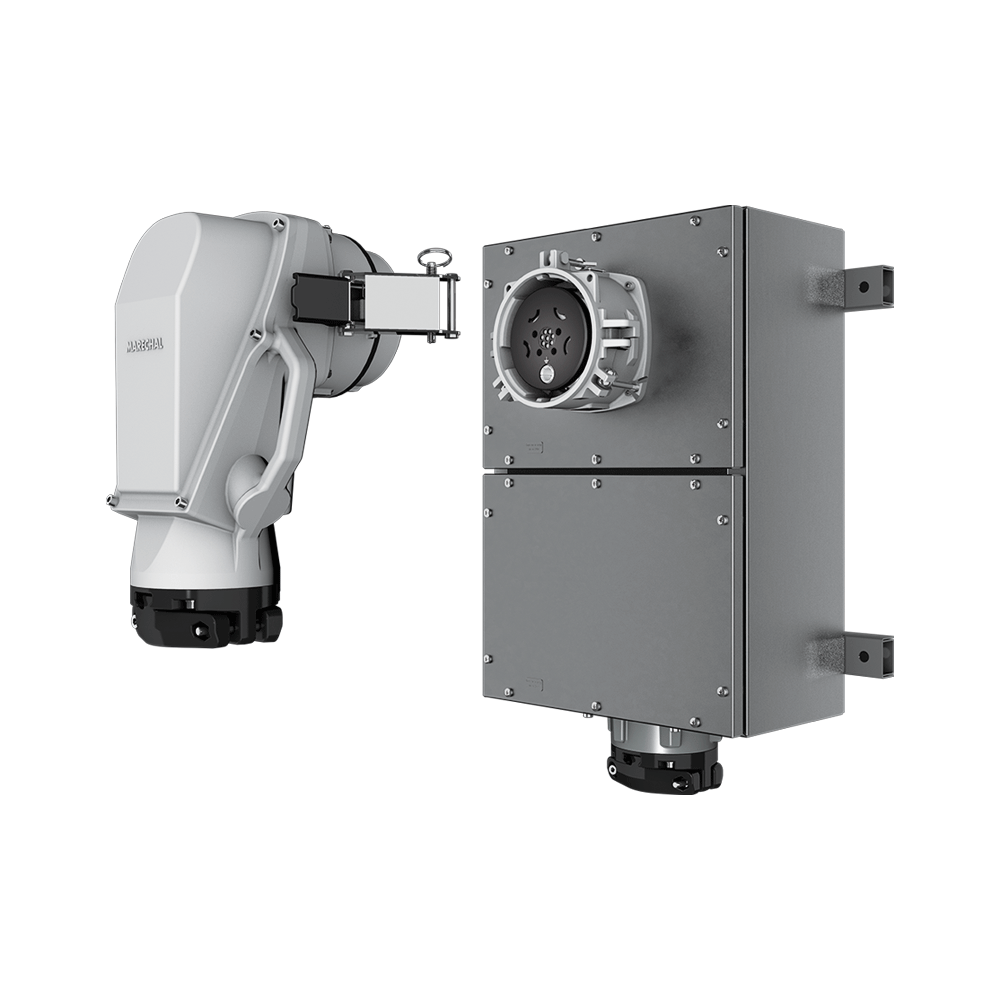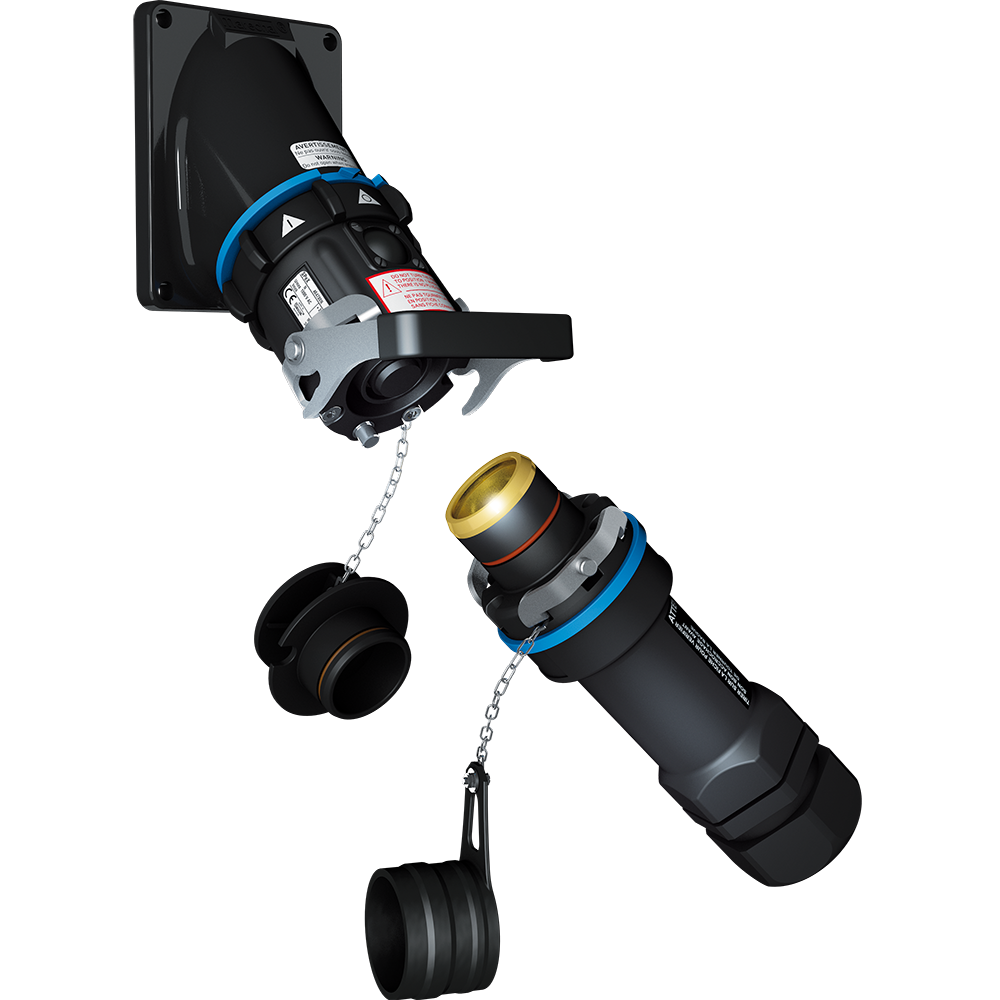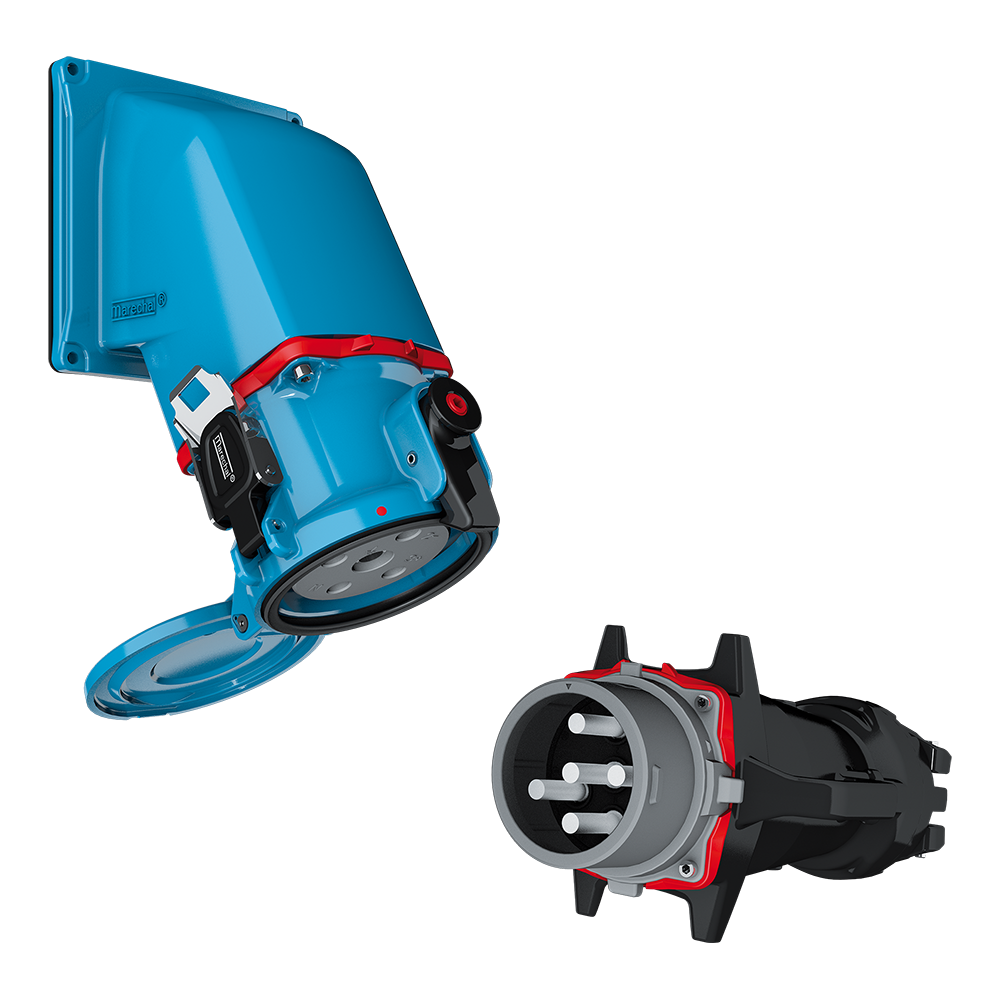From 16 A to 63 A
-
MARECHAL®
CONNECTOR 16 A 480 V – IP66/IP67/IP69 – IK08 – POLY
-
MARECHAL®
DECONTACTOR™ 20 A – 500 V – IP66/IP67/IP69 – IK09 – POLY
-
MARECHAL®
30 A – 500 V INDUSTRIAL PLUG & SOCKET-OUTLET- IP66/IP67 – IK09 – POLY/METALLIC
-
MARECHAL®
HIGH TEMPERATURE PLUG & SOCKET-OUTLET (240 °C permanent) 30 A – 500 V – IP44 – IK09 – METALLIC
-
MARECHAL®
DECONTACTOR™ 30 A – 690 V – IP54/IP55 – IK09 – POLY
-
MARECHAL®
DECONTACTOR™ 32 A – 690 V – IP66/IP67/IP69 – IK09 – POLY
-
MARECHAL®
DECONTACTOR™ 50 A – 1000 V – IP54/IP55 – IK09 – POLY
-
MARECHAL®
DECONTACTOR™ 50 A – 500 V – IP66/IP67 – IK09 – POLY/METALLIC
-
MARECHAL®
FLAT CONNECTOR 50 A – 500 V – IP54 – IK09 – POLY
-
MARECHAL®
DECONTACTOR™ 63 A – 1000 V – IP66/IP67/IP69 – IK09 – POLY
-
MARECHAL®
DECONTACTOR™ 90 A – 1000 V – IP66/IP67 – IK09 – POLY/METALLIC
-
MARECHAL®
CONNECTOR 100 A – 500 V – IP66/IP67 – IK09 – POLY/ METALLIC
-
MARECHAL®
HIGH TEMPERATURE PLUG & SOCKET-OUTLET (150°C permanent) – 125 A – 440 V – IP44 – IK09 – METALLIC
-
MARECHAL®
HIGH-TEMPERATURE PLUG & SOCKET-OUTLET (400 °C/2H) – 125 A – 690 V – IP66/IP67 – METALLIC
-
MARECHAL®
DECONTACTOR™ 150 A – 1000 V – IP66/IP67/IP69 – IK09 – POLY/ METALLIC
-
MARECHAL®
DECONTACTOR™ 250 A – 1000 V – IP66/IP67 – IK10 – METALLIC
-
MARECHAL®
INDUSTRIAL PLUG & SOCKET-OUTLET 350 A – 1000 V – IP66/IP67 – IK10 – METALLIC
-
MARECHAL®
INDUSTRIAL PLUG & SOCKET-OUTLET 400 A – 1000 V – IP66/IP67 – IK10 – METALLIC
-
MARECHAL®
INDUSTRIAL PLUG & SOCKET-OUTLET 400 A – 690 V – IP66/IP67 – IK10 – METALLIC
-
MARECHAL®
SINGLE-POLE CONNECTOR 400 A – 500 V – IP66/IP67 – IK09 – POLY/ METALLIC
-
MARECHAL®
SINGLE-POLE CONNECTOR 500 A – 1000 V – IP66/IP67 – IK08 – POLY
-
MARECHAL®
INDUSTRIAL PLUG & SOCKET-OUTLET 600 A – 1000 V – IP66/IP67 – IK10 – METALLIC
-
MARECHAL®
INDUSTRIAL PLUG & SOCKET-OUTLET 660 A – 1100 V – IP66/IP67 – IK10 – METALLIC
-
MARECHAL®
SINGLE-POLE CONNECTOR 800 A – 1000 V – IP66/IP67 – IK09 – POLY
-
MARECHAL®
SINGLE-POLE CONNECTOR 1250 A – 1000 V – IP66/IP67 – IK10 – METALLIC
